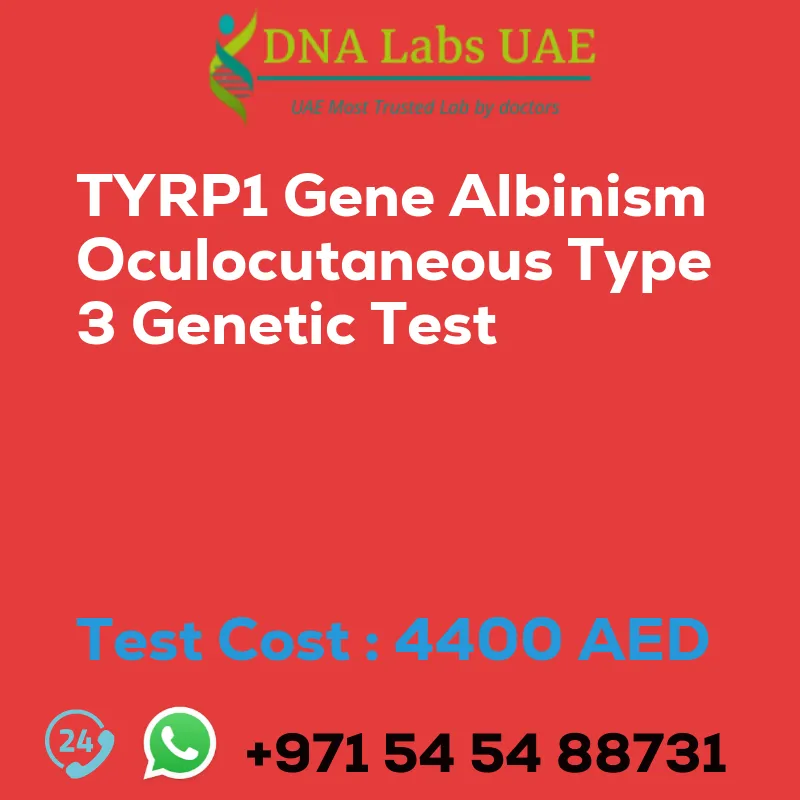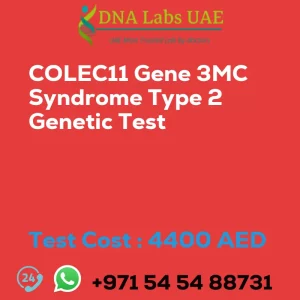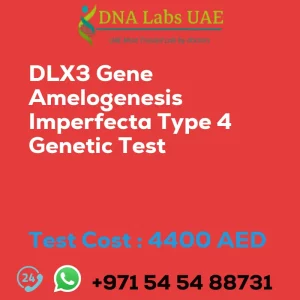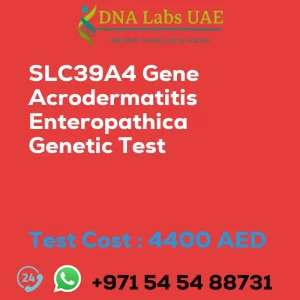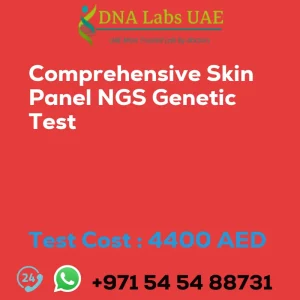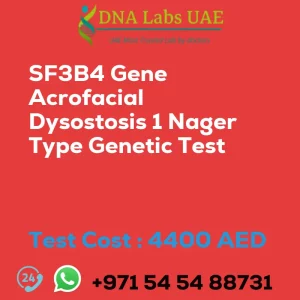TYRP1 Gene Albinism Oculocutaneous Type 3 Genetic Test
Welcome to DNA Labs UAE, a leading genetic lab offering comprehensive genetic testing services. In this blog post, we will discuss the TYRP1 Gene Albinism Oculocutaneous Type 3 Genetic Test, its components, cost, symptoms, diagnosis, and other important details.
Test Name: TYRP1 Gene Albinism Oculocutaneous Type 3 Genetic Test
Components: Blood or Extracted DNA or One drop Blood on FTA Card
Price: 4400.0 AED
Sample Condition: Blood or Extracted DNA or One drop Blood on FTA Card
Report Delivery: 3 to 4 Weeks
Method: NGS Technology
Test Type: Osteology Dermatology Immunology Disorders
Doctor: Dermatologist
Test Department: Genetics
Pre Test Information
Before undergoing the TYRP1 Gene Albinism Oculocutaneous Type 3 Genetic Test, it is important to provide the clinical history of the patient. Additionally, a genetic counseling session will be conducted to draw a pedigree chart of family members affected with TYRP1 Gene Albinism Oculocutaneous Type 3 NGS Genetic DNA Test gene TYRP1.
Test Details
The TYRP1 gene is associated with oculocutaneous albinism type 3 (OCA3), also known as rufous oculocutaneous albinism. OCA3 is a rare genetic condition characterized by reduced pigmentation in the skin, hair, and eyes.
NGS (Next-Generation Sequencing) genetic testing is a type of genetic testing that allows for the simultaneous analysis of multiple genes or the entire genome. In the context of TYRP1 gene testing for OCA3, NGS can identify mutations or variations in the TYRP1 gene that may be causing the condition.
NGS genetic testing for OCA3 can provide valuable information for diagnosis, genetic counseling, and management of the condition. It can help confirm the presence of TYRP1 gene mutations and provide information about the specific genetic changes that are responsible for the condition.
This information can be useful for understanding the inheritance pattern, assessing the risk of recurrence in future pregnancies, and guiding treatment and management options.
It is important to note that genetic testing should be performed and interpreted by healthcare professionals with expertise in genetics, such as genetic counselors or geneticists. They can provide appropriate guidance and support throughout the testing process and help individuals and families understand the implications of the test results.
| Test Name | TYRP1 Gene Albinism oculocutaneous type 3 Genetic Test |
|---|---|
| Components | |
| Price | 4400.0 AED |
| Sample Condition | Blood or Extracted DNA or One drop Blood on FTA Card |
| Report Delivery | 3 to 4 Weeks |
| Method | NGS Technology |
| Test type | Osteology Dermatology Immunology Disorders |
| Doctor | Dermatologist |
| Test Department: | Genetics |
| Pre Test Information | Clinical History of Patient who is going for TYRP1 Gene Albinism, oculocutaneous type 3 NGS Genetic DNA Test. A Genetic Counselling session to draw a pedigree chart of family members affected with TYRP1 Gene Albinism, oculocutaneous type 3 NGS Genetic DNA Test gene TYRP1 |
| Test Details |
The TYRP1 gene is associated with oculocutaneous albinism type 3 (OCA3), also known as rufous oculocutaneous albinism. OCA3 is a rare genetic condition characterized by reduced pigmentation in the skin, hair, and eyes. NGS (Next-Generation Sequencing) genetic testing is a type of genetic testing that allows for the simultaneous analysis of multiple genes or the entire genome. In the context of TYRP1 gene testing for OCA3, NGS can identify mutations or variations in the TYRP1 gene that may be causing the condition. NGS genetic testing for OCA3 can provide valuable information for diagnosis, genetic counseling, and management of the condition. It can help confirm the presence of TYRP1 gene mutations and provide information about the specific genetic changes that are responsible for the condition. This information can be useful for understanding the inheritance pattern, assessing the risk of recurrence in future pregnancies, and guiding treatment and management options. It is important to note that genetic testing should be performed and interpreted by healthcare professionals with expertise in genetics, such as genetic counselors or geneticists. They can provide appropriate guidance and support throughout the testing process and help individuals and families understand the implications of the test results. |

